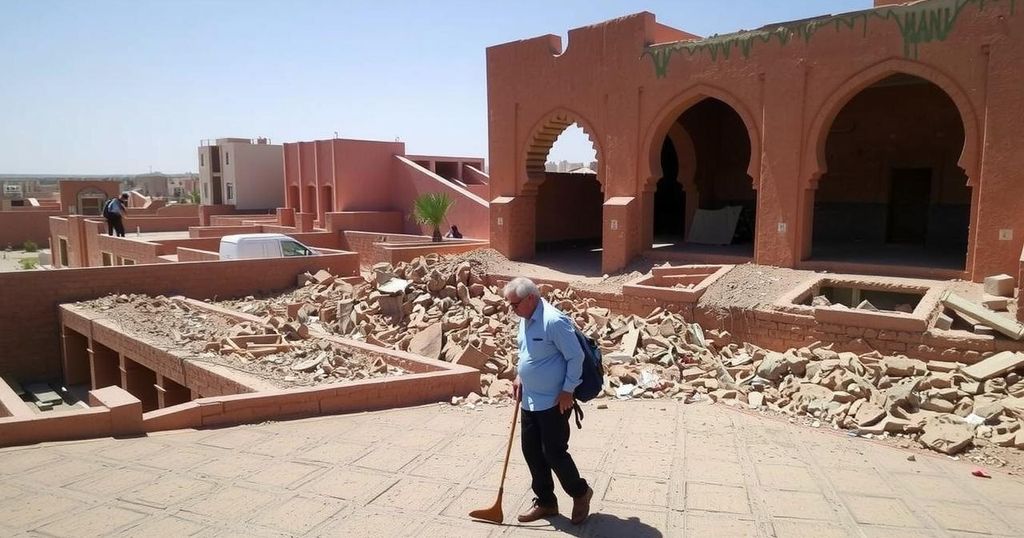Four activists for the 2023 earthquake victims in Morocco appeared in court, including Said Ait Mahdi, facing charges of defamation and insult after local officials complained about their social media posts. The earthquake specifically devastated Al Haouz province, prompting calls for expedited reconstruction support. The Moroccan government has since issued numerous reconstruction permits and announced a five-year recovery plan with a significant budget.
On Monday, four activists dedicated to advocating for the victims of the 2023 earthquake in Morocco appeared before a Marrakech court facing various charges, including defamation. Notably, Said Ait Mahdi, the head of the Al Haouz Earthquake Victims Coordination group, has been in custody for a week, according to his lawyer, Mohamed Nouini. The charges were initiated following complaints lodged by local officials against the activists over perceived offensive social media posts. Ait Mahdi’s defense has requested his release pending trial scheduled for January 6.
The Al Haouz province, situated south of Marrakech, was particularly devastated by the 6.8-magnitude earthquake that struck in September 2023, resulting in nearly 3,000 fatalities and extensive injuries. The earthquake caused widespread destruction, leaving tens of thousands of homes in ruins and forcing families to endure harsh winter conditions outdoors. In response to this crisis, Ait Mahdi’s group has urged the government to expedite reconstruction efforts and improve support for affected families.
As of early December, the Moroccan authorities had granted approximately 57,000 reconstruction permits, while more than 35,000 houses had either been completed or were under construction. Following the earthquake, the government launched a comprehensive five-year reconstruction initiative, allocating a budget of $11.7 billion, which includes $740 million earmarked to assist families in rebuilding their homes through phased funding.
In September 2023, Morocco experienced a catastrophic earthquake with a magnitude of 6.8, predominantly impacting the Al Haouz province. As a result, nearly 3,000 people lost their lives, and thousands more suffered injuries. The earthquake caused substantial property damage, with tens of thousands of homes decimated, rendering many homeless. Following this disaster, various initiatives were implemented by the Moroccan government, including a substantial reconstruction plan aimed at revitalizing the affected regions and supporting victim recovery. However, the government response has faced criticism, motivating activists like Ait Mahdi to advocate for faster reconstruction efforts and greater support to affected families.
The ongoing legal challenges faced by activists in Morocco, particularly those advocating for victims of the September earthquake, highlight the tensions surrounding the government’s response to the disaster. As reconstruction efforts progress slowly, the calls for more immediate support for the victims remain central to the discourse. The case of Said Ait Mahdi underscores the delicate balance between civil advocacy and governmental authority in times of crisis, with significant implications for future activism in Morocco.
Original Source: www.arabnews.com






